This article was co-authored by Trudi Griffin, LPC, MS. Trudi Griffin is a Licensed Professional Counselor in Wisconsin specializing in Addictions and Mental Health. She provides therapy to people who struggle with addictions, mental health, and trauma in community health settings and private practice. She received her MS in Clinical Mental Health Counseling from Marquette University in 2011.
This article has been viewed 19,366 times.
Borderline personality disorder (BPD) is a serious mental illness that causes unbalanced moods, erratic behaviors, and unstable relationships.[1] Helping a loved one with BPD can be overwhelming and problematic, especially if you are taken along the emotional rollercoaster with him or her. If you set boundaries, communicate with your loved one, and take care of yourself, you can help your loved one with BPD.
Steps
Setting Boundaries with Your Loved One
-
1Discuss your limits. When you are helping a loved one with BPD, you need to set up strict boundaries for your relationship. Your loved one will likely be going through an emotional rollercoaster at any point and can take it out on you. Have an honest discussion about what your personal limits are and what you won't take from your loved one.[2]
- For example, tell your loved one, "If you start verbally abusing me, I am going to walk away." You can also say, "If you get to a point where I think you may hurt or attack me, I will leave the room or the house."
-
2Let your loved one know you still love him or her. Relationships between loved ones where one has BPD can be tense and problematic. Your loved one's disorder can cause major problems that may lead to hurt feelings and stressed relationships. Despite this, you need to let your loved one know that you still love him or her, even if you have to leave.[3]
- For example, tell your loved one, "I love you and want to stay in your life. However, there may be times when I have to remove myself from the situation because of your behavior."
Advertisement -
3Encourage your family member to seek treatment. If your loved one has BPD, you cannot force him or her to get treatment. However, you can encourage your loved one to get help and you can ask if you can offer your help in any way. By asking your loved one if you can help, he or she may be more likely to accept.[4]
- For example, you could try telling your loved one, "I would like you to get some help because you are hurting yourself. I love you and only want to see you get better. Would you be willing to let me make an appointment for you with someone who can help?"
-
4Set realistic goals. When you are helping your loved one, you want to make sure to set realistic goals. It is common for people with BPD to have big goals in mind or try to do too much at once, so help your loved one to slow down.[5]
- If your loved one has some big goals in mind, try to tackle them in small, achievable steps instead of all at one time. This way, your loved one will feel accomplished but know there is more to work on. For example, if your loved one says he wants to find a full-time job and finish his college degree within the next year, then you might encourage him to focus on one of these goals at a time.
- Then, you could break the goal into smaller steps. For example, if the goal is to finish his college degree, then you might encourage your loved one to focus on small goals, such as enrolling in classes, meeting with an academic advisor, and joining a study group to increase his chances of success.
-
5Use direct language. When your loved one with BPD is running on emotions, he or she may not be able to understand complicated language or long sentences. Instead, speak to your loved one in short, direct sentences that get your point across effectively. This will decrease the chance that your loved one will misinterpret your words or what you are trying to say.[6]
- For example, tell your loved one, "I am leaving. I don't want to say anything I regret. I'll come back when we're both calm. I love you."
-
6Know when to walk away. When your loved one is extremely agitated or explosive, it may be a good time to remove yourself from the situation. Detaching yourself from the situation for a little while may help to deescalate your loved one’s emotions.[7]
- Try telling your loved one, "I will come back in an hour we can discuss this when both of us are calm."
- Leaving the situation is also a good idea because it can prevent you from engaging with your loved one’s accusations. It is important to avoid becoming defensive in response to your loved one’s accusations. This may make your loved one angrier and cause the situation to escalate.[8]
Communicating with Your Loved One
-
1Acknowledge your loved one's pain. When your loved one is raging about something or is upset and despondent, you should focus on the emotions he or she is trying to convey. When your loved one does this, he or she often is seeking validation and comfort for the pain he or she is feeling.[9]
- This may be hard if your loved one is saying hurtful things. However, try to look past the words and see the underlying pain and other emotions being expressed. For example, if your loved one is shouting at you, then you could acknowledge her anger by saying something like, “I can tell that you are really angry right now.”
-
2Listen to your loved one. For your relationship with your loved one to work, you need to listen to him or her. When your loved one is talking, push any judgment you have aside and actively listen and take in what your loved one is saying. Turn off TVs, phones, or computers and focus on your loved one.[10]
- To let your loved one know you are listening, offer a periodic sound of acknowledgement or comment, such as "yes" or "uh huh." By using these types of statements, you will be letting your loved one know that you are hearing him or her. It does not mean that you are agreeing with everything your loved one says.
-
3Detach yourself from the situation. Your loved one with BPD will have highs and lows as part of the disorder. This means that your loved one will sometimes be elated and overly enthusiastic. Just like you shouldn't get too emotionally involved when your loved one is belligerent, the same goes for when he or she is elated. Your loved one will act on impulse and emotions, often saying over the top things and suggesting things that are not feasible or possible. When this happens, detach yourself from the situation and try not to get swept up in the excitement.[11]
- For example, your loved one may talk about how much he or she loves you. You loved one may also suggest you take a trip that is not feasible for either of you.
-
4Talk about other things. Don't focus on the BPD in every conversation that you have with your loved one. Your loved one's life isn't defined by the BPD, so don't let your relationship be either. Talk about lighter topics that are of interest to both of you.[12]
- For example, try talking to your loved one about his or her interests, a movie you recently saw, or plans for upcoming holidays.
-
5Try to distract your loved one. When you are with your loved one and his or her mood swings to anger or depression, try distracting him or her with an activity. Put on a movie you both want to see, go for a walk, make a cup of tea, play with a pet, or any other sort of soothing activity that takes your loved one out of the moment.[13]
- Doing something soothing and enjoyable will get your loved one's mind off of the emotions and focused on something more productive and healthy.
-
6Watch for destructive behavior. If you notice your loved one's behavior seems self-destructive, don't ignore it. Let your loved one know you are concerned. Even if your loved one tells you to mind your own business, keep a watch on him or her for warning signs. If you are worried about warning signs, talk to you loved one's therapist or doctor. If you see suicidal behavior, get help for your loved one immediately. The warning signs include:[14]
- Reckless behavior
- A change in behavior or normal activities
- Refusal to eat
- Any signs of self-harm, such as scratches
Taking Care of Yourself
-
1Educate yourself about your loved one's BPD. Learning as much as you can about the triggers and treatments for your loved one's BPD is a good idea. Educating yourself about BPD can help you be more prepared to help when he or she has an attack, know what to do if he or she needs help, and help you empathize with the situation. However, remember that learning about BPD will not solve all of your problems or cure your loved one.[15]
- You can ask your loved one's doctor for information about BPD or ask your loved one's therapist about triggers to avoid.
- You can also use reputable online resources, such as the Mayo Clinic and the National Alliance on Mental Illness (NAMI), for information.
-
2Ask for help from other loved ones. When you are helping a loved one who has BPD, you may get overwhelmed and feel like you are all alone. This is not the case. The rest of your family and your close friends are there to support you. Turn to them for help as well as emotional support when you are feeling down.[16]
- Dealing with a loved one that has BPD can bring your spirits down. Take time after you've been with your loved on to recharge with other family and friends.
-
3Join a BPD support group. When you are dealing with a loved one that BPD, it can be helpful to talk to others that also have family members with BPD. These people will understand exactly what you are going through and you'll be able to look to them for advice and support.[17]
- Look for a support group in your area. You can ask your loved one's doctor if there is one nearby.
- If you can't find an in person support group, look into online support groups for some additional help.
-
4Remember you can't fix your loved one. When you see your loved one suffering, you may be tempted to try to fix his or her problems. Although being supportive and there for your loved one can help, there is no way you can cure your loved one's BPD. It is a mental disorder that your loved one must seek treatment for.[18]
- You also cannot control how your loved one acts or how the BPD will progress. You just have to learn to work with your loved one to help.
-
5Realize it isn't about you. When your loved one has borderline personality disorder (BPD), he or she is suffering from deep emotional pain. All destructive or hurtful behaviors exhibited by your loved one are related to the disorder and are not a direct reflection of something you did.[19]
- When your loved one does say something hurtful, it is a coping mechanism to try to stop the pain he or she is feeling, not a deliberate attack on you. Try not to let it get to you.
References
- ↑ http://www.nimh.nih.gov/health/topics/borderline-personality-disorder/index.shtml
- ↑ http://www.helpguide.org/articles/personality-disorders/helping-someone-with-borderline-personality-disorder.htm
- ↑ http://www.helpguide.org/articles/personality-disorders/helping-someone-with-borderline-personality-disorder.htm
- ↑ http://www.borderlinepersonalitydisorder.com/family-connections/family-guidelines/
- ↑ http://www.borderlinepersonalitydisorder.com/family-connections/family-guidelines/
- ↑ https://www.borderlinepersonalitydisorder.org/family-connections/family-guidelines/
- ↑ https://www.borderlinepersonalitydisorder.org/family-connections/family-guidelines/
- ↑ http://www.helpguide.org/articles/personality-disorders/helping-someone-with-borderline-personality-disorder.htm
- ↑ http://www.helpguide.org/articles/personality-disorders/helping-someone-with-borderline-personality-disorder.htm
- ↑ http://www.helpguide.org/articles/personality-disorders/helping-someone-with-borderline-personality-disorder.htm
- ↑ https://psychcentral.com/blog/caregivers/2017/09/15-things-not-to-do-with-someone-with-borderline-personality#3
- ↑ http://www.borderlinepersonalitydisorder.com/family-connections/family-guidelines/
- ↑ http://www.helpguide.org/articles/personality-disorders/helping-someone-with-borderline-personality-disorder.htm
- ↑ http://www.borderlinepersonalitydisorder.com/family-connections/family-guidelines/
- ↑ http://www.helpguide.org/articles/personality-disorders/helping-someone-with-borderline-personality-disorder.htm
- ↑ http://www.helpguide.org/articles/personality-disorders/helping-someone-with-borderline-personality-disorder.htm
- ↑ http://www.helpguide.org/articles/personality-disorders/helping-someone-with-borderline-personality-disorder.htm
- ↑ http://www.helpguide.org/articles/personality-disorders/helping-someone-with-borderline-personality-disorder.htm
- ↑ http://www.helpguide.org/articles/personality-disorders/helping-someone-with-borderline-personality-disorder.htm

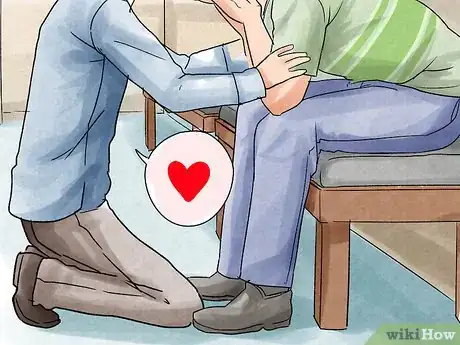
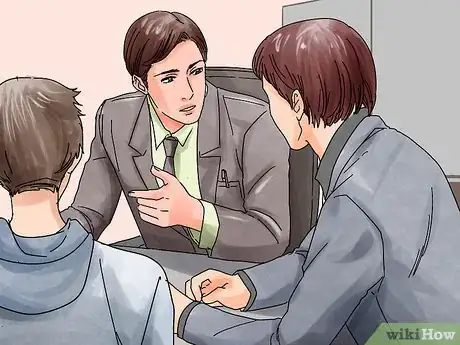




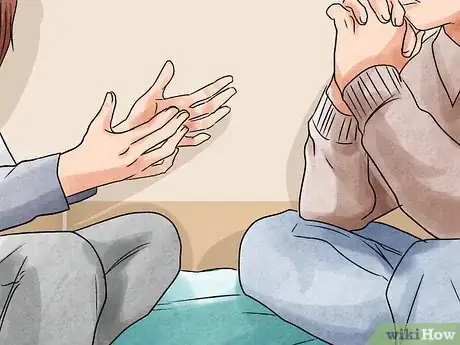
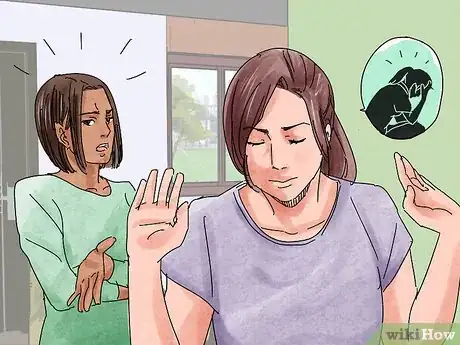

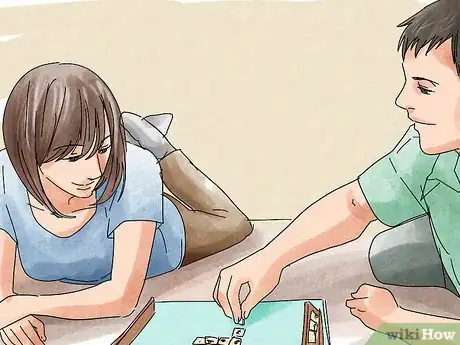
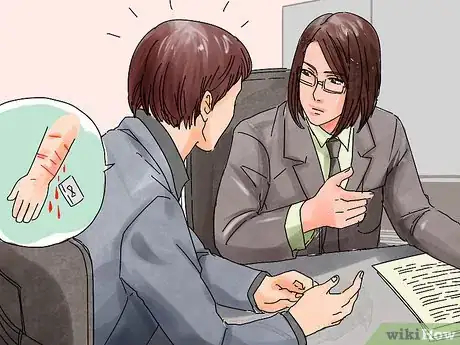

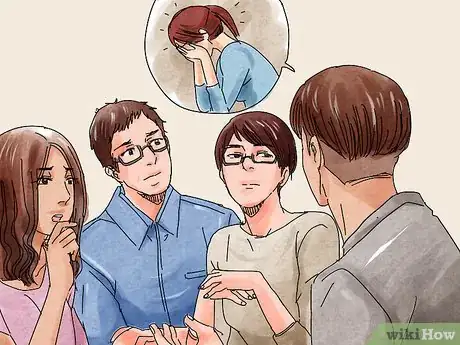
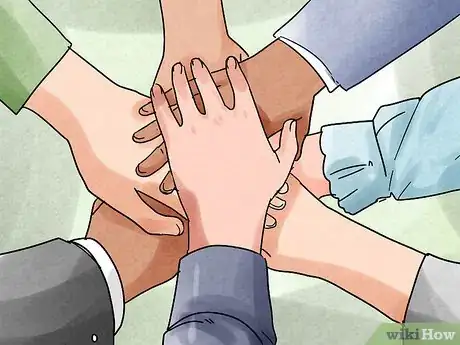
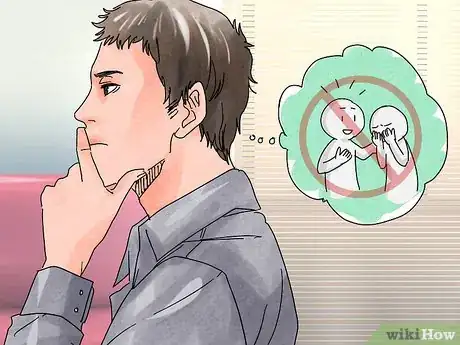
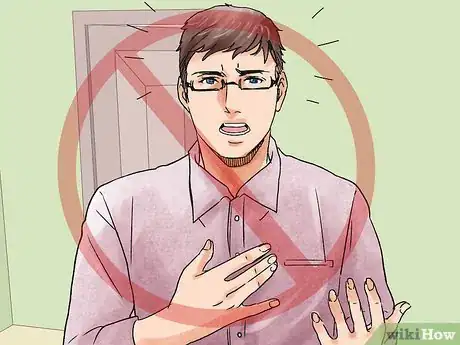







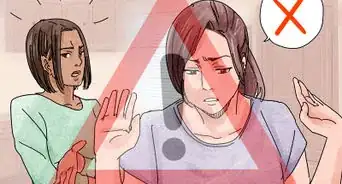




















































Medical Disclaimer
The content of this article is not intended to be a substitute for professional medical advice, examination, diagnosis, or treatment. You should always contact your doctor or other qualified healthcare professional before starting, changing, or stopping any kind of health treatment.
Read More...